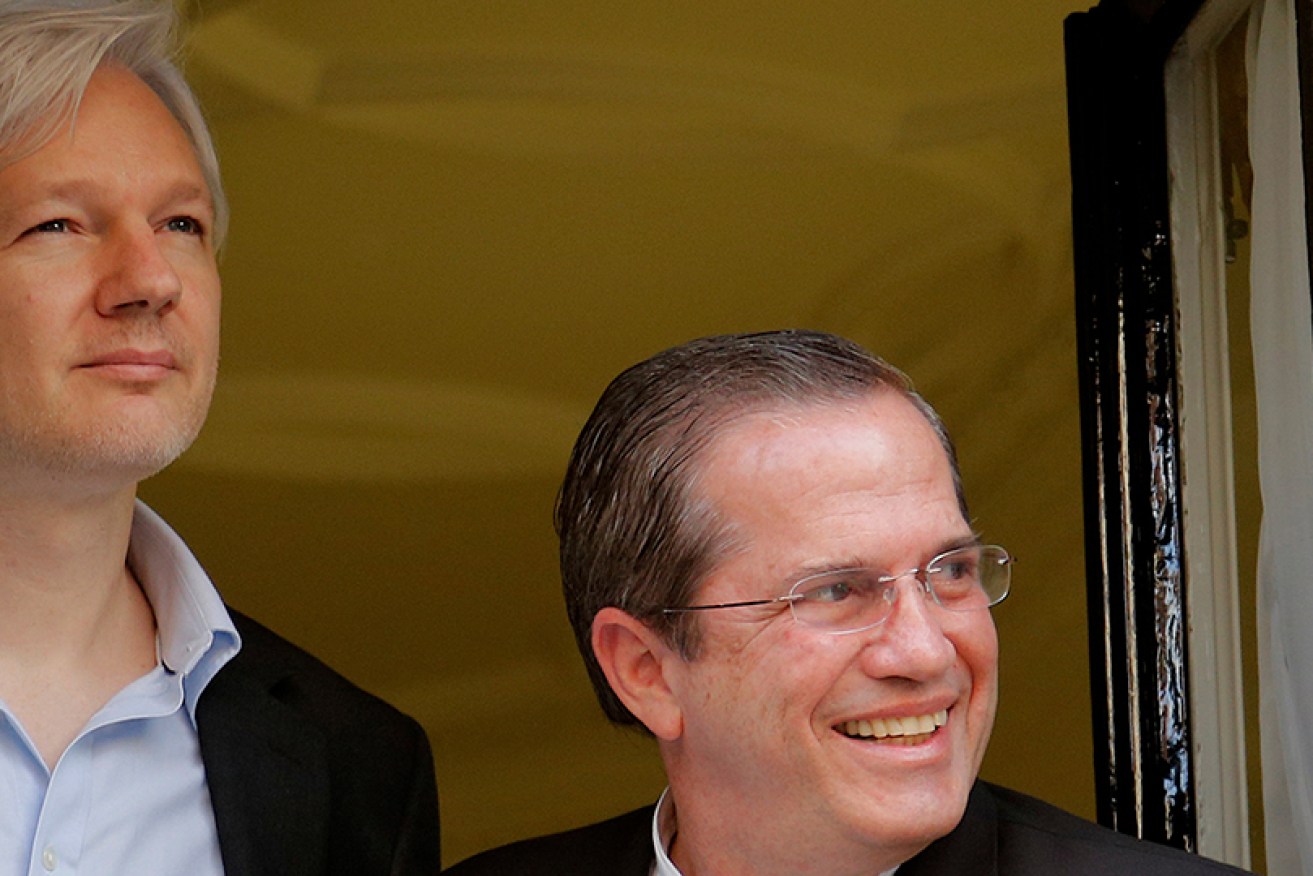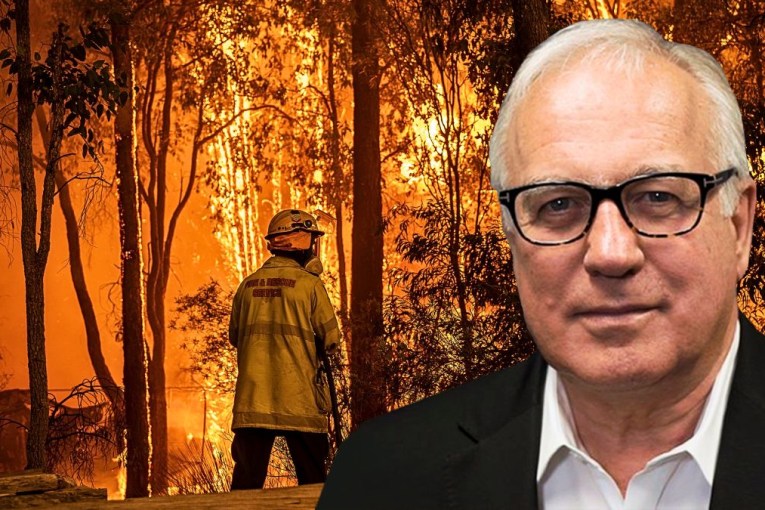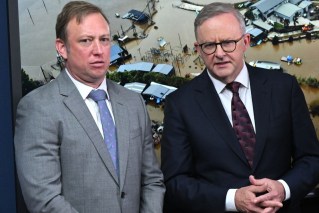Michael Crooks: The day I spent with Julian Assange in his embassy sanctuary

Assange with Ecuadorian Foreign Minister Ricardo Patino (R) at the Ecuadorian embassy in central London in June 2013. Photo: Getty
A couple of things hit me as odd as soon as I walked into Julian Assange’s London bolthole in June 2013, one year into what would be a seven-year stay for the WikiLeaks boss.
I was then the news editor for Who, and had first made contact with Julian in 2008, just when WikiLeaks was starting to cause a stir. Five years later, through negotiations with WikiLeaks staffers by Who’s then-senior reporter Louise Talbot (now a news editor at The New Daily), I was invited in to his sanctuary, a rare inside look at a unique exile.
The first thing that struck me was how big his space was at the Ecuadorian embassy in Knightsbridge, where Julian had sought refuge from arrest in 2012 over sex assault charges in Sweden, and possible extradition to the US.
I had imagined walking into a dark and airless bedsit, but these were light-filled spacious digs with a high ceiling, more the size of a living room than a bedroom, with a grand red leather couch, single sofas, cabinet, chunky wooden bookshelf, large dining table, and space in the middle large enough to swing an Apple iMac.
The other thing I couldn’t get past was the lack of a bed.
After we shook hands (mine, a friendly medium hold; his, firm and embassy clammy), I sat down on the couch and said, “Where do you sleep?”
“Can’t say,” he said, apparently fearful of either a sniper or an unlawful midnight arrest.
What he could say, however, in a wink-wink sort of way, was where he had been sleeping: the ladies’ loo. It was the quietest room in the building, he said, away from the Harrods’ loading dock outside his window, and the sometimes noisy police guarding the embassy.
“They ripped out the toilet for me,” he said, sprawled out on the sofa in a shirt, jeans and socks on a hot summer’s day. “They’ve been very generous.”
Julian was generous with me, too. Though it was clear he’d rather talk about his bugbears, from governments to Google and Zuckerberg, he gave me what I wanted: his personal story.
As we talked, people buzzed in and out of the room including a female assistant and a couple of young uni-type disciples who typed away on one of the four laptops on the table, and occasionally threw him a question about an upcoming Skype meeting or today’s lunch. I was told not to print the name of the Knightsbridge restaurant where the food (sushi) came from for fears of poisoning.
On the bookshelf there were things his supporters had sent him including Barossa wine, Tasmanian honey and a tube of Vegemite. There was an Aboriginal flag propped up in the corner and two goldfish in an aquarium on a Victorian mantle.
On display was a ‘Courage Award’ from Yoko Ono, and we briefly bonded over a shared admiration of Yoko’s late husband, another troublemaker. “Everyone’s a John Lennon fan,” he said.
And that segued into an origin story of sorts. In his youth in Australia Julian was a child of roaming puppeteers, and attended 37 different schools. When he was a new student at Townsville High, there had been a theft from a storeroom and someone pinned it on him.
“So I was drummed up to the principal, who then caned me,” he said.
“So there’s an example of authority making unjust decisions because it simply didn’t understand the situation. I was furious.”
It helped shaped the young man who would one day create a website with which he hoped to expose corruption and injustice.
“Justice, happiness and self-determination are important,” he told me. “Transparency is the most effective tool we know to get those.”
As for his own happiness, he seemed oddly content with his situation. “By being in the embassy we make the conflict clear,” he said. Even so, he later added, “Hopefully, the situation has been resolved by July.”
It would take another six years. On April 11, Julian Assange’s exile came to an end with his arrest, after Ecuador removed its asylum. He was found guilty of breaching bail and has been remanded in custody to await sentencing.








